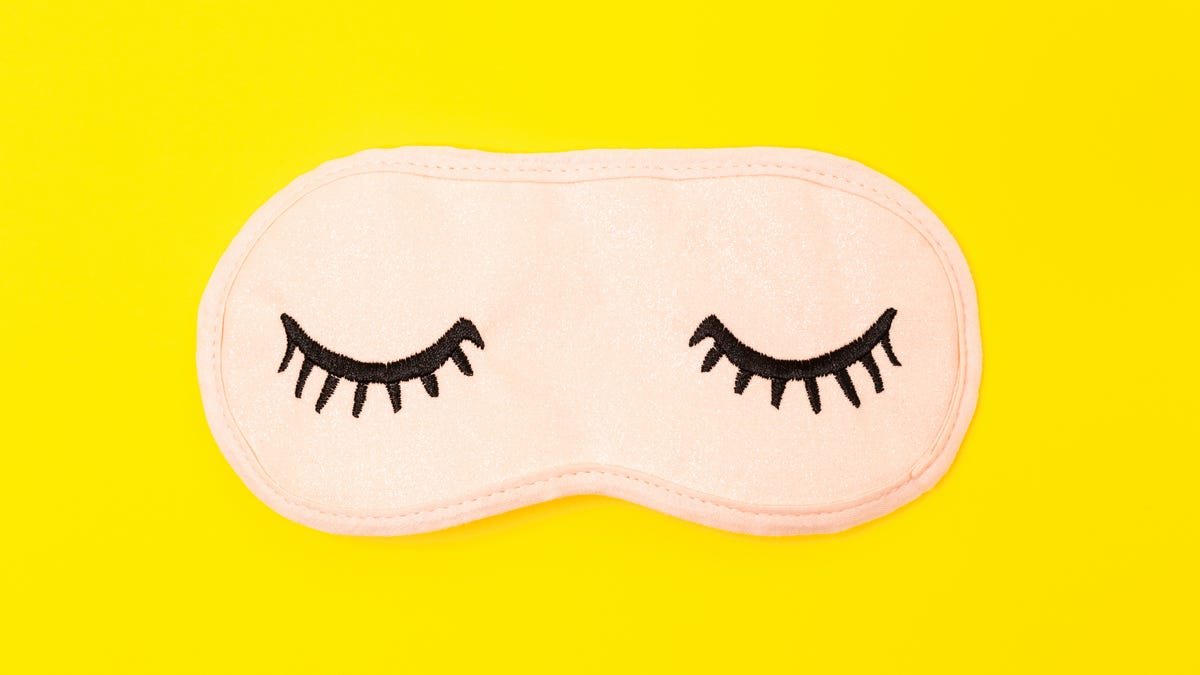 Why You Can Trust CNET
Why You Can Trust CNET 6 Game-Changing Habits That'll Help You Sleep Better
Incorporate these six habits into your daily routine to achieve optimal sleep.

A good night's sleep can be hard to come by, especially for the 70 million American adults who have a sleep disorder. From anxiety to poor sleep hygiene, there are many reasons why you may not be getting the quality rest you need.
The average adult should get seven to eight hours of sleep each night, as it plays a key part in regulating our mental and physical health. A good night's sleep can boost your mood and decision-making, aid in muscle repair, regulate the immune system … the list goes on.
If poor sleep is the norm and "refreshed" is the last word you would use to describe how you feel in the morning, incorporate these six habits into your daily routine to improve sleep quality as we approach the start of the new year.
Best habits for better sleep
A full night's rest doesn't have to come few and far between. Improving sleep hygiene can help you overcome the different factors that disrupt your quality of sleep.
1. Have a bedtime routine
Humans are creatures of habit, and practicing a calm bedtime routine each night before bed can help prepare your mind and body for bed. Before long, your body begins to recognize that it's bedtime when you start your routine and will boost melatonin production.
Here are a few things you can do to help promote relaxation and ease stress before bed.
- Read a book: Reading just 6 minutes a day has been shown to reduce stress by up to 68%, and CNET's mental health writer credits reading before bed as the key to her improved sleep quality.
- Meditate: Research shows that meditation before bed can reduce cortisol levels, a hormone responsible for stress, and increase melatonin production, a hormone that plays a role in your sleep-wake cycle. It can also teach you mindfulness to help you cope with anxious thoughts before bed, not allowing them to prevent you from falling asleep.
- Take a bath: Taking a bath before bed not only promotes relaxation, but it helps lower your body temperature to a level that's ideal for sleep. While it seems it would have the opposite effect, warm water sets off your body's temperature-regulating mechanism and increases blood flow from your core to your extremities, resulting in a drop in temperature.
- Have a cup of tea: Certain caffeine-free teas help reduce stress and ease anxiety. This includes camomile, valerian root and passionflower.
2. Stay off electronics before bed
I know this isn't what you want to hear. Many people like scrolling on their phones or binge-watching TV shows before bed, but it can severely impact your quality of sleep and sleep latency (amount of time it takes to fall asleep).
Blue light from electronic devices disrupts your body's natural internal clock, aka circadian rhythm, and prevents the production of melatonin. The notifications that constantly make your phone buzz also keep your mind stimulated and alert when you should be winding down for bed.
The best rule of thumb is to keep off electronics at least 30 minutes before bed.
3. Exercise during the day
Exercising during the day can help you sleep better at night.
Physical activity during the day that increases your heart rate can help improve sleep and, according to the Sleep Foundation, can take the place of sleep medications for some. Around 76-83% of volunteers in a 2013 Sleep in America poll who did light to vigorous exercise reported having good sleep.
However, avoid high-intensity workouts too close to bedtime to keep your heart rate from spiking and minimize stimulation.
4. Avoid late afternoon cups of coffee
Like working out too close to bedtime, you shouldn't have too much caffeine too close to bed. As much as you might crave that 3 p.m. cup of coffee to get you through the rest of your day, it could keep you from falling asleep at a reasonable time.
Coffee has a half-life of four to six hours, meaning that's how long it takes for just half of the caffeine to break down in your system. In other words, your body stays alert for an extended period of time, which is counterproductive to falling asleep.
Limit your last cup of joe to six hours before bed (or longer).
5. Start a journal
Journaling before bed can help release, cope or organize your stressful thoughts so they aren't trapped in your mind, keeping you from falling asleep. There's something therapeutic about unloading your thoughts physically onto paper. It can also help you prepare for a busy week ahead as you work through the responsibilities you need to tackle.
Read more: 5 Reasons You Should Start Journaling and How to Start
6. Consider these natural sleep aids
Natural sleep aids are a good alternative to sleep medications and can be incorporated into a nighttime routine to help promote better sleep. Here are a few home remedies and aids that are easy to get your hands on at a local store.
1. Lavender oil
2. CBD
3. Tart cherry juice
4. Valerian root

